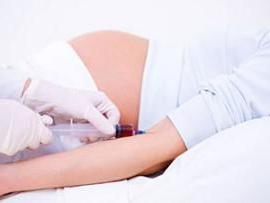On hcg donate blood on an empty stomach. What is hCG and when is it better to take an analysis, on an empty stomach or not? Diagnostic value of the indicator. How and when to analyze
A week after fertilization has passed, the embryo must begin the struggle for survival. Just during this period, the embryo is attached to the uterus and the cells of a special hormone are actively produced to perform a protective function against the aggressive actions of the mother's body.
it essential substance called human chorionic gonadotropin. It is about him that mothers constantly ask “HCG to take on an empty stomach or not?”.
We'll look at a few tips and tricks on how to acquire and interpret first trimester pregnancy images and how to optimize those views. Tips for trans-abdominal pelvic imaging in the first trimester of pregnancy. Probe selection - low frequency probe allows better penetration into ultrasonic waves and visualize organs of interest. The first sign of pregnancy to be seen on a trans-abdominal pelvic scan is the gestational sac. However, a pseudogestational sac can be seen in the uterus when ectopic pregnancy. 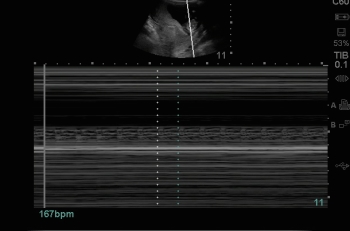
Before you remove the tube and inform the patient about your upcoming child, be sure to find another one, adequately inflating the uterus. If the patient has pelvic pain and you have an intrauterine pregnancy at your bedside ultrasound then the cause of the pelvic pain is not found. We need to be more aware of heterotopic pregnancies, a phenomenon that was considered extremely rare a few decades ago. If you detect an intrauterine pregnancy on ultrasound, whether with or without cardiac activity, the patient requires timely follow-up care.
- Understanding the progression of pregnancy.
- Evaluation of multiple stages of pregnancy.
- Don't forget the ovaries.
- This is followed by an evaluation of the ovaries.
- Don't forget to ask if in vitro fertilization predominates.
- Encouraging the continuation of midwifery.
In the structure of the hormone, there are alpha and beta units, to identify which, pregnant women donate blood for hCG for analysis and check the number of beta subunits.
Why is it called HCG?
The collection of cells that later form the placenta is called the chorion. The task of the chorion is to produce hCG. The direction of the action on the female genital organs - the gonads - provoked the idea to call the hormone - gonadotropin. For the protective work of the gonads, a certain amount of hCG is needed, which contributes to the restructuring of organs for this function.
What can be learned from a blood test?
Some of them turned out to be early intrauterine pregnancies, which were later discovered and led to the birth of a malformative child or miscarriage. Such consequences are catastrophic for the affected family and for medical malpractice. New literature has emerged that aims to change the paradigm of evaluation and management of patients presenting with threatened first trimester abortion.
How to donate blood for hCG at home, on an empty stomach or not?
Some of the highlights of the new recommendations include. The results of diagnosing the diagnosis of pregnancy. Absence of an embryo with a heartbeat ≥ 2 weeks after a scan that showed a gestational sac without yolk sac. Absence of an embryo with a heartbeat ≥ 11 days after a scan that showed a gestational yolk sac.
- Coronal length ≥ 7 mm and no cardiac contraction.
- Mean sac diameter ≥ 25 mm and no embryo.

Maternal hormones are much weaker than human chorionic gonadotropin, so it can affect a woman's ovaries and uterus. At the same time, progesterone is actively produced, which is necessary for normal development embryo. For the development of the male organism, the hormone adjusts the development of the embryo to the male type.
When a man injects testosterone exogenously, it significantly alters how the hypothalamus, pituitary, and ovarian glands respond to each other, keeping male androgen hormones in balance. Many of our hormones act in a cascade event, and there is no other axis between these three glands.
When T levels are low in a normal healthy person The hypothalamus releases a "releasing" hormone, which tells the pituitary gland to release another hormone known as luteinizing hormone. Biggie: testicular atrophy. Men will see their testicles getting smaller with time and constantly getting sick along the way. The duration of this event appears to be different in males, where younger guys may seem longer when middle-aged and older guys see the event happening on a more accelerated scale.
This hormone is also responsible for protective function from the stresses associated with pregnancy. After the production of the hormone, immunity is weakened to prevent rejection.
What can be learned from a blood test?
There are several reasons for donating blood for analysis:
- depending on the level of hCG in the blood, pregnancy can be confirmed or denied;
- the possibility of detecting deviations during the period of gestation.
By analyzing blood for hCG, doctors can find out the exact amount of a substance in the body, which makes it possible to determine the fertilization of an egg earlier from generally accepted test strips that can be used 5-6 days after conception. In the future, by observing the increase in its number and pace, it is possible to predict the development of the embryo.
If the blood for hCG is negative?
sperm production in to a large extent terminated. A man's scrotum will be very tight and pull up to the body causing pain and end up looking like a 5 year old. For correct and normal function brain For the proper functioning of the testicles. If men ever want to restart If men ever want to have children If men don't want balls that get trapped in a small mass of useless collagen.
Concomitant intramuscular chorionic gonadotropin preserves spermatogenesis in men undergoing testosterone replacement therapy. Purpose: Testosterone replacement therapy leads to a decrease in the level of gonadotropins in the blood serum and intratestosterone and reduces spermatogenesis, which leads to azoospermia in 40% of patients. However, intracerebral testosterone can be maintained during replacement therapy testosterone when co-administered with low-dose human chorionic gonadotropin, which may support continued spermatogenesis in patients on testosterone replacement therapy.
In the first weeks of pregnancy, the volume of hormones increases every two days. The maximum level of the hormone can be fixed after 10-11 weeks after the fertilization of the egg. In the following weeks of pregnancy, there is gradual decline concentration of hormones, the placenta becomes a hormonal center and works independently.
Materials and Methods: We retrospectively reviewed records of hypogonadal patients treated with testosterone replacement therapy and concomitant low-dose human chorionic gonadotropin. Testosterone replacement consisted of daily topical gel or weekly intramuscular injection with intramuscular human chorionic gonadotropin every other day. Serum and free testosterone, estradiol, semen parameters, and pregnancy rates were assessed before and during therapy.
Results. The study included 26 men with a mean age of 9 years. Of the men, 19 were treated with injectable testosterone and 7 treated with transdermal gel. Conclusions. A low dose of human chorionic gonadotropin appears to maintain sperm parameters in hypogonadal men on testosterone replacement therapy. Concurrent testosterone replacement and the use of human chorionic gonadotropin may preserve fertility in hypogonadal individuals who wish to maintain fertility with testosterone replacement therapy.
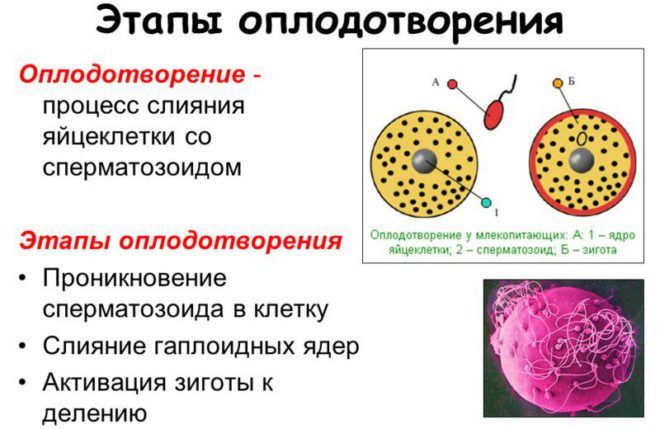
And also by examining the level of gonadotropin, you can find out some important factors course of pregnancy:
- ectopic pregnancy;
- inadequate placental nutrition;
- detection of risk leading to miscarriage;
- extra term gestation;
- detection of defects in the fetus.
When to donate blood for analysis?
Gynecologists are sent for such an analysis if there is a delay in menstruation from about 3 to 5 days. Initially, it must be taken after 10–11 weeks, and the next time after 13–14 weeks of gestation. Thanks to the deciphered results, doctors are able to find out about the presence of pathologies in the development of the embryo and hereditary diseases.
There are a few famous doctors who have recommendations and prescribe based on their experience of the patient's subjective responses to treatment and subsequent serum levels. Once a week Testosterone injection protocols. Two times a week. Testosterone injections. If a person injects twice a week, like every 5 days, the more common protocol is more likely to take lower doses.
The hormone performs many functions in the human body, including: Promotes healthy brain function and protects against dementia and Alzheimer's disease. Many men feel good when they start adding human chorionic gonadotropin. It can also prevent age-related diseases and support central nervous system. Increases immune system and increases energy levels. Protects against coronary disease and improves heart health and may lower cholesterol levels.
If you are taking any hormonal drug, you must notify your doctor about this.
Decreased hcg level
The level of hCG can rise and fall, along with which, all kinds of violations of the course of pregnancy are possible.
Enhances mood and relieves depression. Many men declare their mood when they start eating. Combat the effects of fatigue and stress. A typical dose is 50 to 200 mg daily, best taken in the morning on an empty stomach. This results in a shift from a catabolic state to an anabolic or protein building state.
When it turns out that a woman has a missed period, she begins to think about possible pregnancy. She is searching different symptoms who must prove her right. This helps diagnose pregnancy before the usual rapid tests. This hormone increases significantly inside female body after successful completion of implantation in the uterine cavity. Compared to the blood, the concentration of the hormone there is much less. This is why a blood test detects pregnancy much earlier.
After passing the tests, the hCG levels may be below the norm, which is set for a certain period of pregnancy. This may be due to such factors:
- inaccurately set gestational age;
- fading of the embryo or the presence of an ectopic pregnancy;
- possible spontaneous miscarriage;
- suspicion of a delay in the development of the fetus;
- incorrect work of the placenta (deviations are possible).
In addition, during the second and third trimester, low hcg level may signal fetal failure. Most often, the results of the analysis are not exact definition for a specific diagnosis. After the diagnosis is made, an ultrasound examination and repeated blood donation for tests are required. Neglecting such nuances, the patient receives erroneous results.
How soon does a blood test detect pregnancy?
A repeat blood test may reveal or. There are situations when women need to know that they are pregnant even before the missed period. These should include cases where pregnancy is not desired or its normal course is maintained with the help of progesterone preparations.
The fact is that a woman does not have enough progesterone, she takes these medications immediately after. If she is not pregnant, progesterone preparations are discontinued; this usually causes menstruation. If a woman is pregnant and stops taking her medication, she will not be able to keep the baby. Will be early miscarriage. That is why many women prefer this method to detect pregnancy.
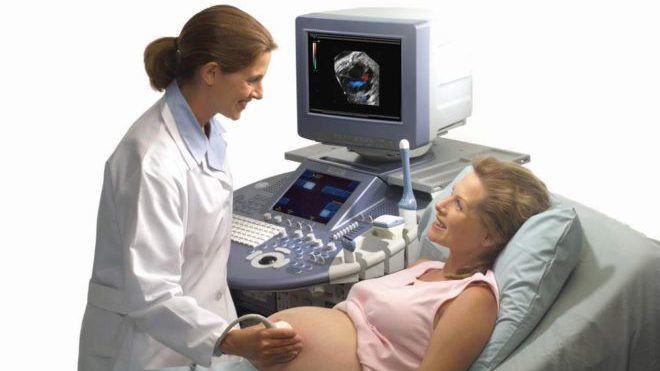
Elevated hormone levels
In the first 10 weeks of pregnancy, the amount of the hormone is growing rapidly and for a certain period there is its own established norm hormone indicators.
At multiple pregnancy hCG levels rise even more depending on the number of fetuses developing at the same time. In such cases high concentration hormone in the blood is natural and should not be disturbed. However, there are some factors that increase hCG levels.
When is the best time to have a blood test?
As a rule, the implantation process occurs approximately 7 days before the missed period. However, unless specifically directed, health professionals recommend having a blood test after a missed period. A blood test for human chorionic gonadotropin not only helps to detect pregnancy, but also shows its approximate duration. you need to know the exact date implantation. If on the first day his level reaches 4 units, the next day he will become 8 units.
- incorrect setting of the gestational age;
- the effect of taking synthetic hormones;
- mother diabetes or late toxicosis;
- the fetus has many malformations or a hereditary disease.
And also strongly elevated level hormone may be evidence of late hemostasis.
The procedure for donating hCG
When examining blood for hormone levels, a double or triple test is performed in the prenatal screening complex. The effectiveness and accuracy of analyzes can be seriously affected by the use of a hormonal drug, which is reported to laboratory assistants before blood donation. These limits are set because of the sensitivity female hormones for any intervention, regardless of concentration, time and nature.
How to prepare for a blood test?
However, medical experts advise taking a blood test after a missed period unless indicated for a procedure and repeating it several times later. Anyone medical examination have their own requirements. Observing these rules helps ensure the most accurate results. First of all, it is necessary to discuss the possible consumption hormonal drugs with your doctor.
In addition, you must consider the following rules
In the morning you should take a blood test on an empty stomach: if you do not take a test in the morning, then more than 6 hours must have passed since your last meal; you shouldn't be doing exercise on the eve of a blood test, you are unlikely to be able to correctly interpret the results of a blood test - it is better to consult a doctor for professional opinion. Blood test is done medical specialist who have undergone special training in this clinic. As a rule, the laboratory is located on its territory. AT rare cases the biomaterial is sent to the nearest diagnostic facility.
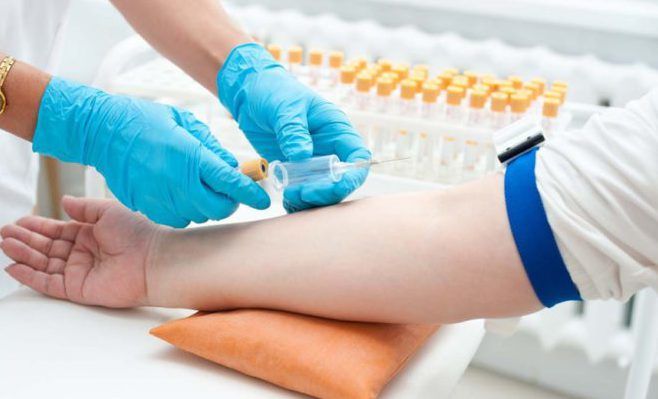
For achievement high results some rules must be observed:
- do not take fatty and spicy foods;
- exclude heavy physical activity;
- donate blood for hcg calm state after a light rest.
These performance features determine the passage of studies on an empty stomach. When taking an analysis on an empty stomach, the composition of the blood will not depend on any external influence. And the result of violation of such rules is distorted indicators, which in the future will become the basis for incorrect diagnosis.
After eating and during this process, the biochemical and clinical composition of the blood changes, which makes you think again about how to do it right, whether to take hCG on an empty stomach or not. A comprehensive examination is purposefully carried out to preserve the health of a woman and an unborn child, in connection with which one should not neglect the recommendations of doctors, and treats this very carefully.
Many people think that it is not necessary to donate blood for hCG on an empty stomach. If such disagreements arise and the choice is approved, it is best to consult a doctor at another clinic by contacting an authoritative specialist. Only after that it is worth making conclusions with a choice.
During pregnancy, you need to pass a lot of tests, go through a lot of research and tests. This need is associated with the need to obtain maximum information about the processes that take place in the body of the expectant mother and timely response to all kinds of violations. Sometimes, due to late identification of problems, it can lead to catastrophic consequences the health of the baby or mother.
person) to this moment is one of the most reliable methods for diagnosing and determining pregnancy. This hormone is produced by the embryonic membrane throughout the entire period of gestation, and its concentration level varies depending on the period. The largest numbers are noted for a period of 10-12 weeks.
When a woman receives a referral to this study, most often the question arises of how to donate blood for hCG. After all, this is one of the most exciting moments, so you want to prepare for it, as expected. Indeed, such a diagnosis requires special conditions which significantly increase the reliability of the results. The basic rule that every woman who goes to the laboratory should remember is that she donates blood for hCG on an empty stomach and nothing more! Why is it so important? The fact is that hormones are subject to absolutely any factor with outside, as a result of which the obtained figures may change in one direction or another. Accordingly, such an analysis cannot be considered reliable, and the consequences may lead to an incorrect diagnosis. That is why every pregnant woman needs to full responsibility approach this issue and ask the doctor for all the details about how to donate blood for hCG.
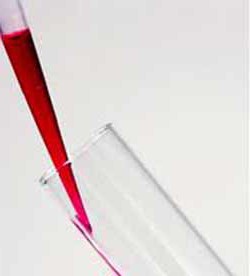
What else does chorionic gonadotropin say?
Determining the level of this indicator can provide information about some other circumstances regarding the unborn child, namely:
- Having an ectopic pregnancy.
- Lack of placental nutrition.
- The presence of risks that contribute to miscarriage.
- Postponed pregnancy.
- The presence of defects in the fetus.
In addition, excessive increased rates may indicate toxicosis, diabetes, multiple pregnancy and late gestosis. These circumstances once again emphasize the fact that it is imperative to know how to donate blood for hCG.
How is a regular pregnancy test different?
Oddly enough, but the study of urine is carried out with the determination of the same indicator, i.e. hCG, but their effectiveness is not as high as in the blood. More exact result they can show on more later dates pregnancy. This is due to the fact that the concentration of hormones in the blood is several times higher than in the urine.
Possible mistakes
Even if you learned how to donate blood for hCG, and did everything right, sometimes errors still occur. Most often this happens when a woman does not wait for a delay in menstruation. It is ideal to conduct such a study on the 10-12th day from the moment of conception.
If the blood for hCG is negative?
Sometimes when obvious signs pregnancy analysis demonstrates low level indicator, which may indicate an ectopic location of the embryo. If the results after high numbers suddenly began to show negative, then you can suspect an incipient miscarriage or fetal fading. In both cases, immediate hospitalization of the woman to the hospital is required.

